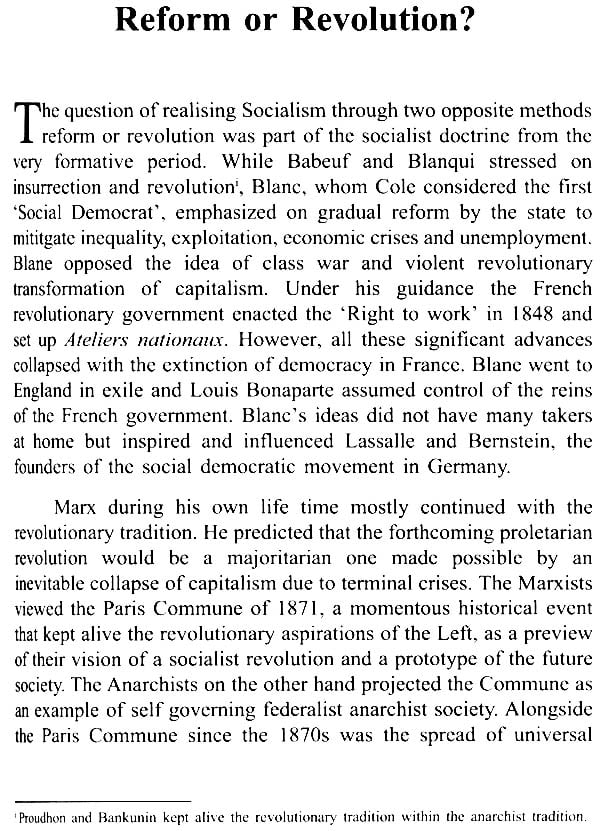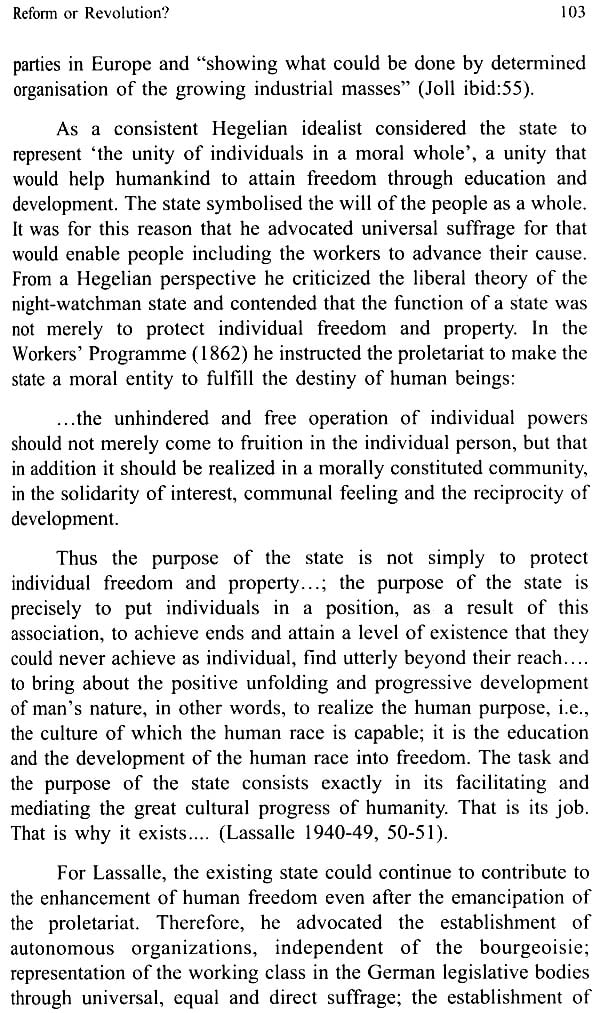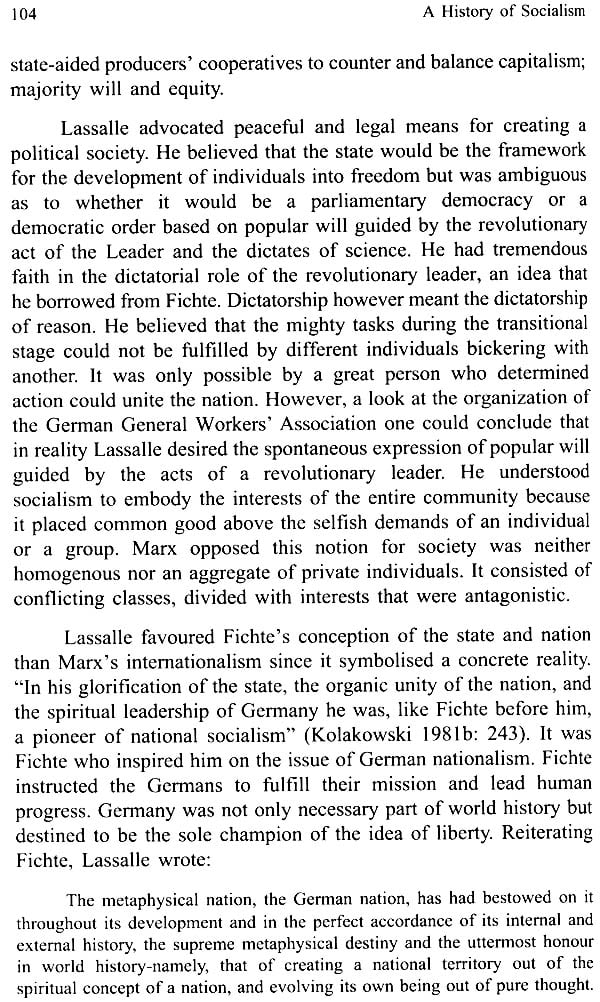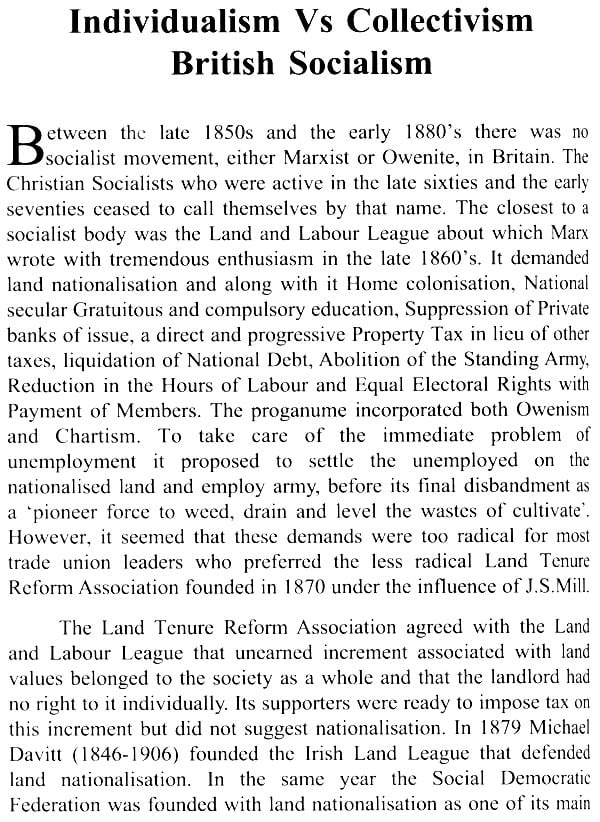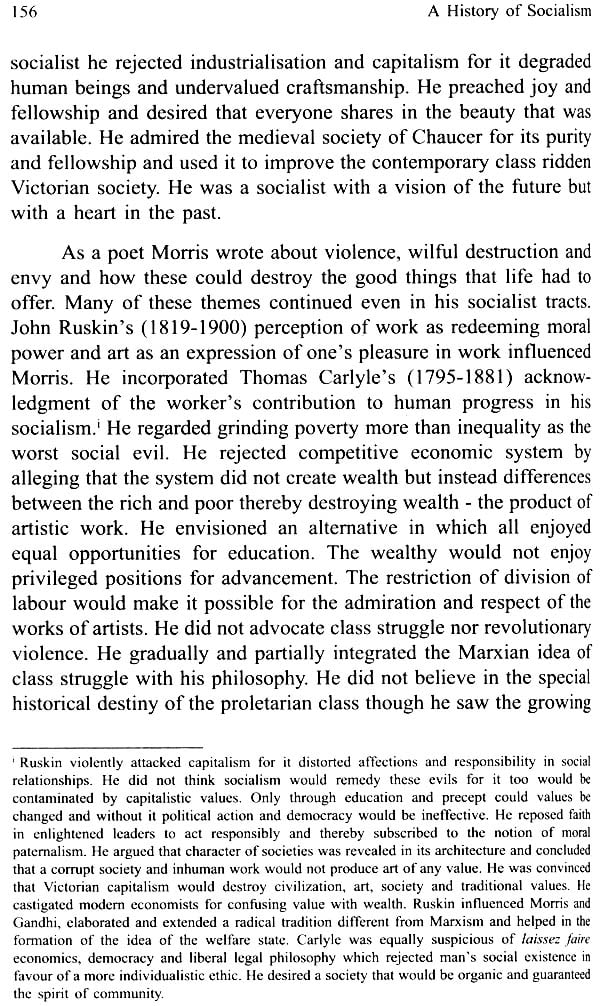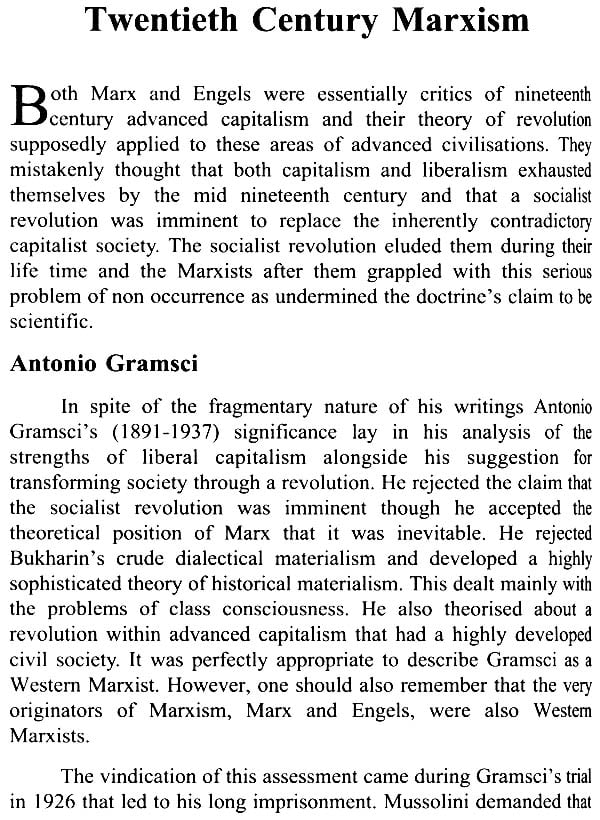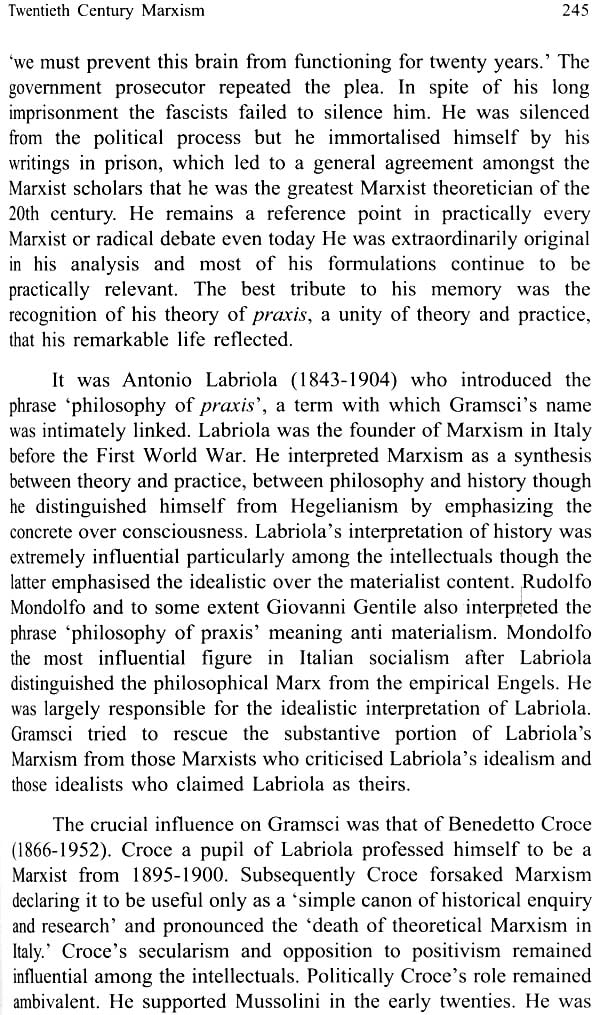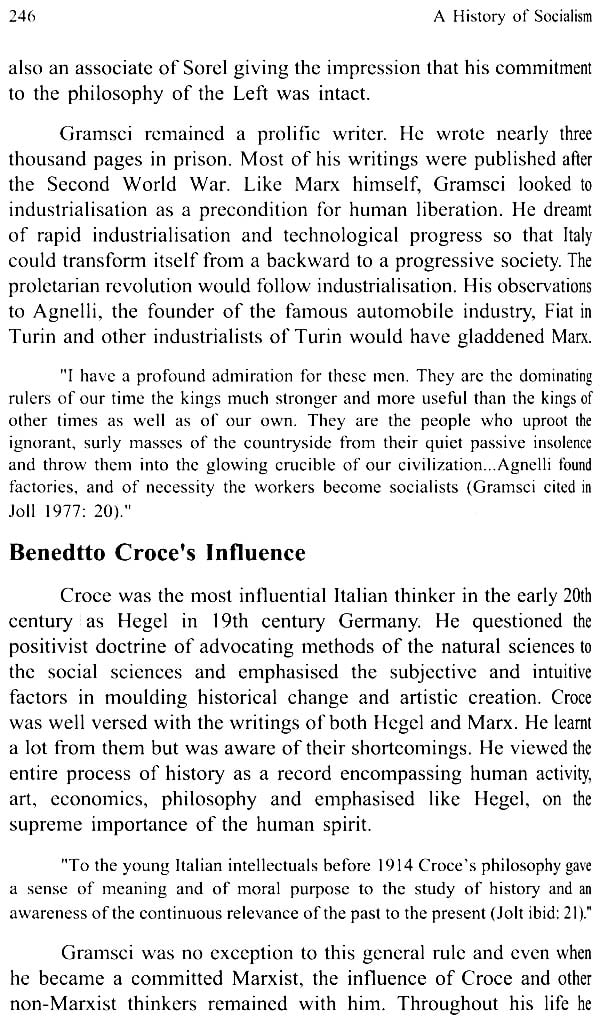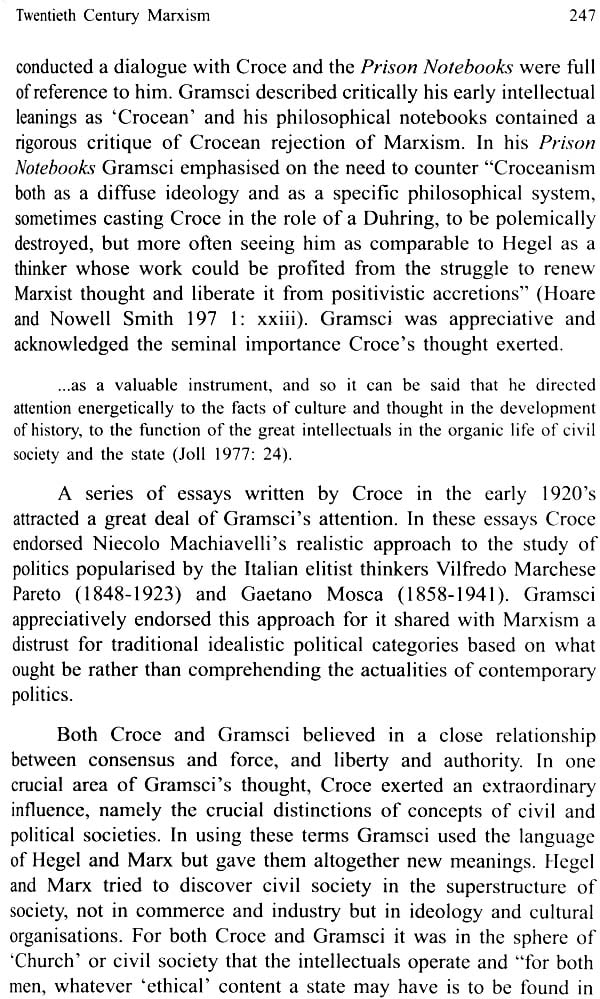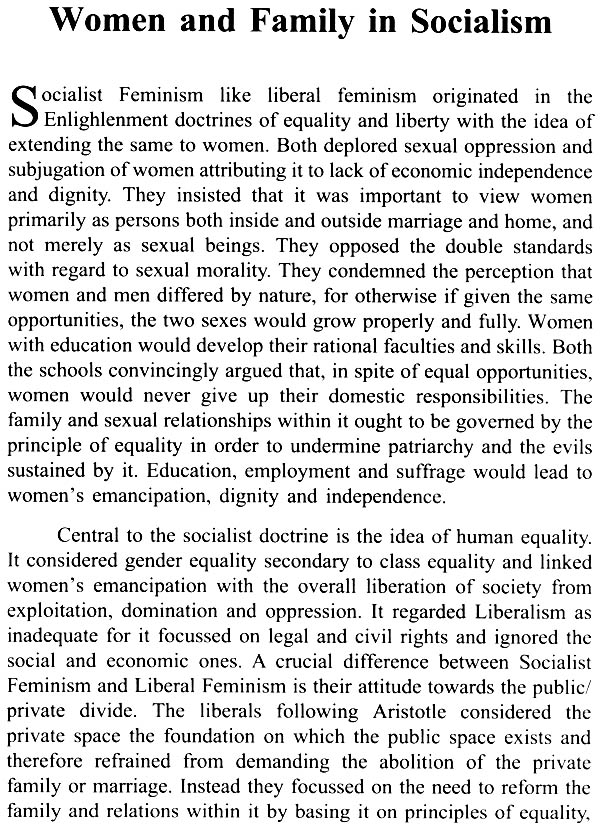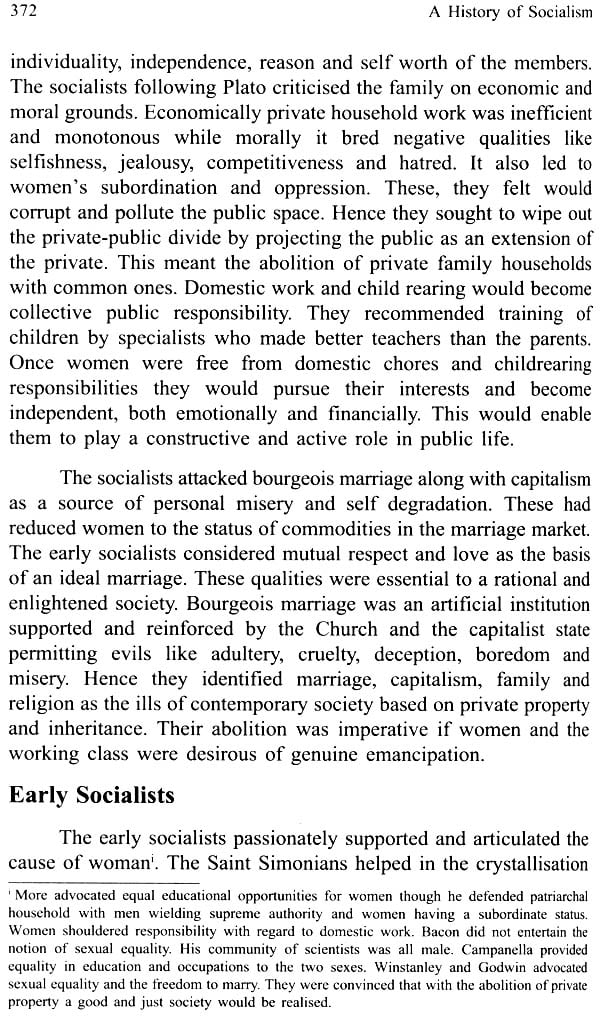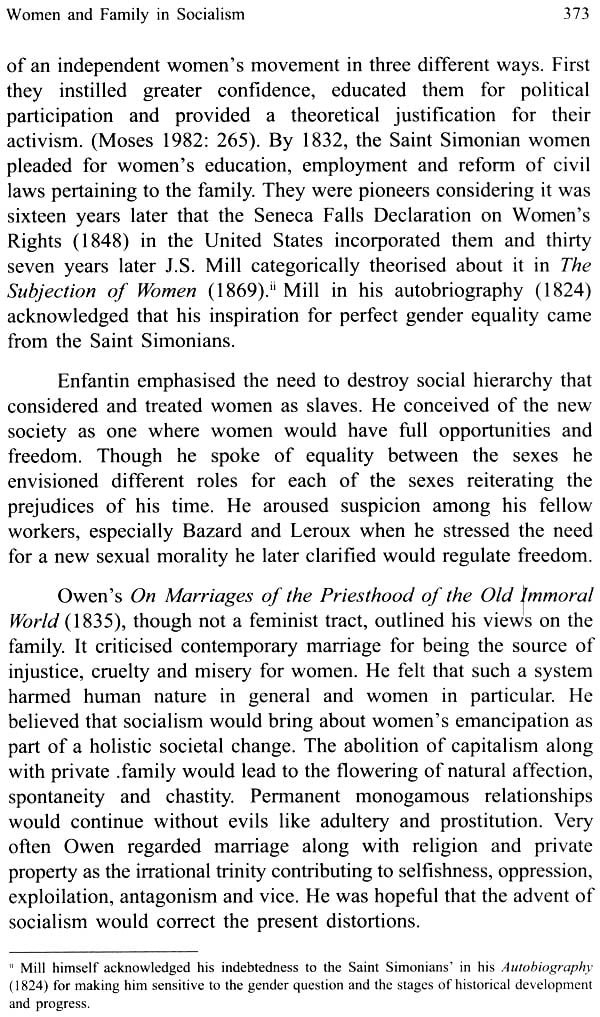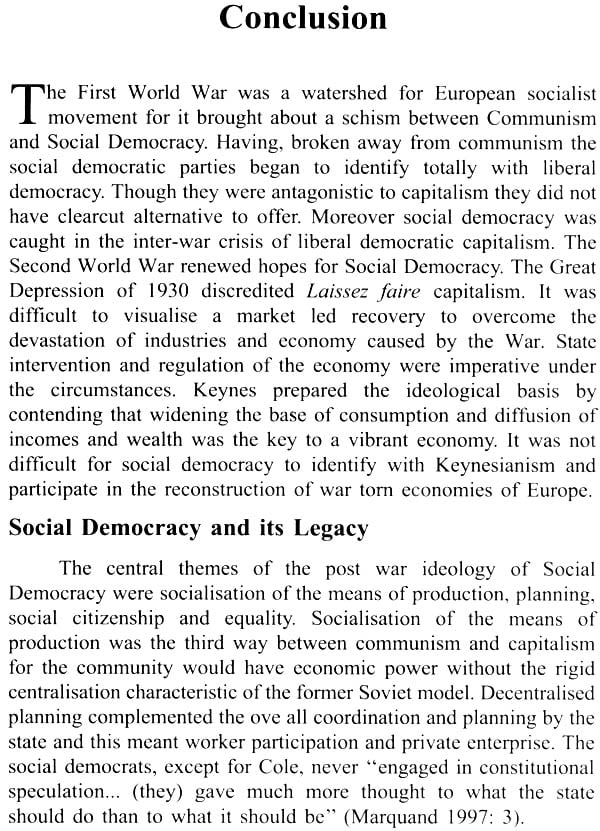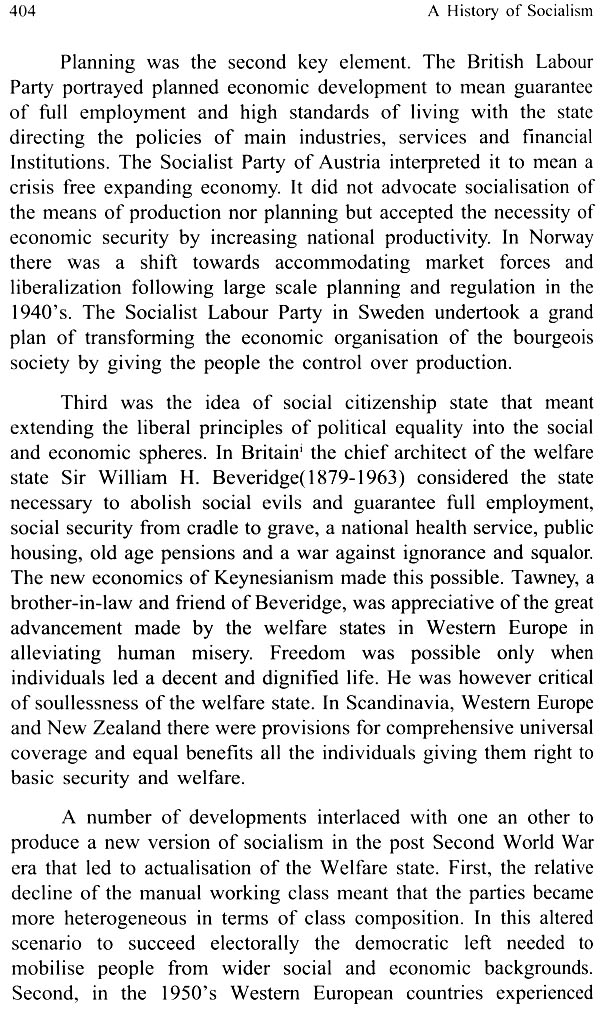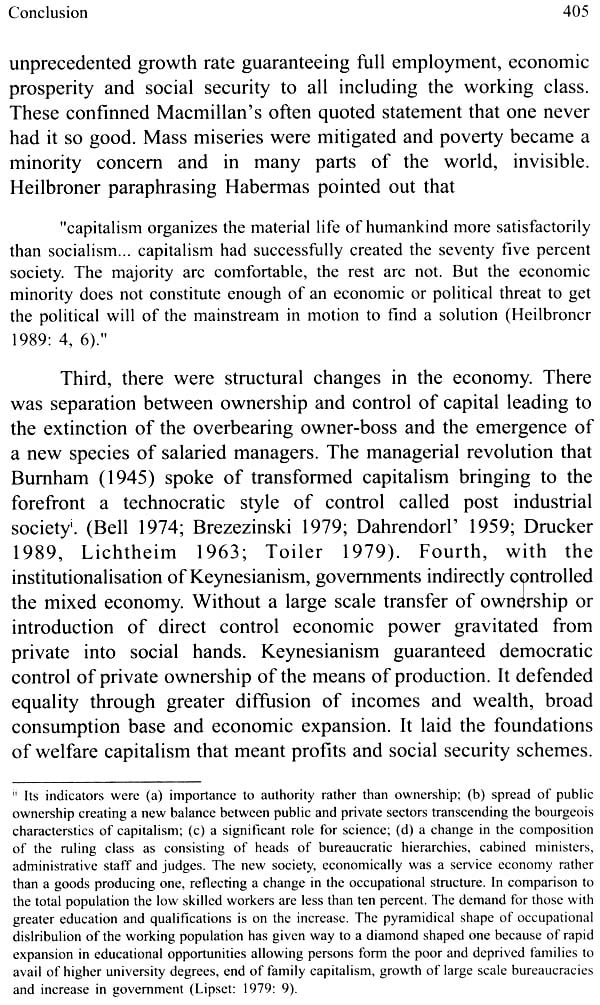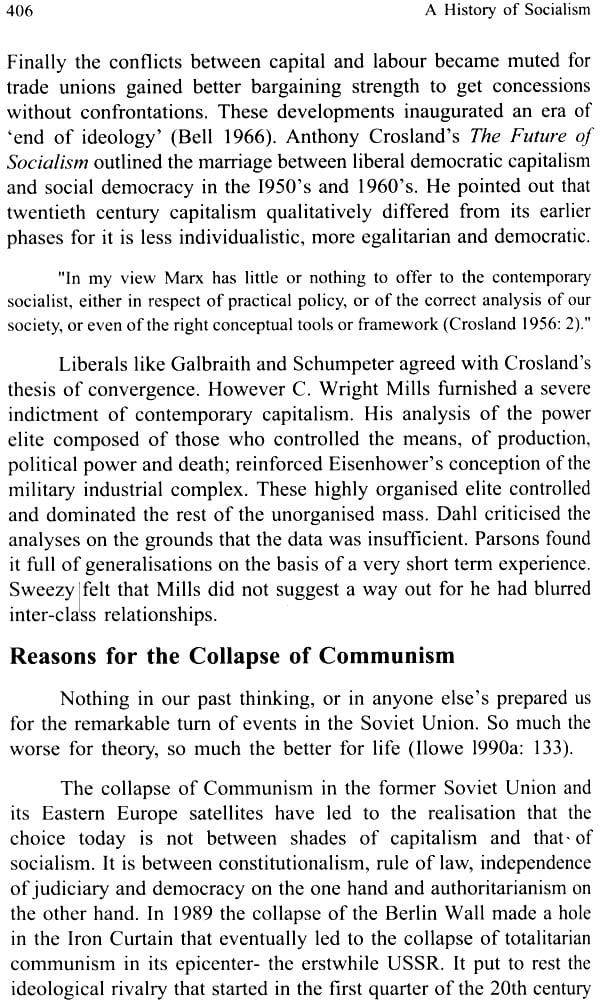
A History of Socialism
Book Specification
| Item Code: | NAL304 |
| Author: | Subrata Mukherjee & Dr.Sushila Ramaswamy |
| Publisher: | Publication Division University of Calicut |
| Language: | English |
| Edition: | 2014 |
| ISBN: | 9788123018638 |
| Pages: | 450 |
| Cover: | Hardcover |
| Other Details | 10.0 inch X 6.0 inch |
| Weight | 850 gm |
Book Description
This book traces the history of socialism from the 19th century onwards. Socialism arose as a critique of the capitalist system and promised to rectify its maladies. Over the major part of 20th century, socialism was a concept that guided the state policy in many countries of the world. The book provides a critical appraisal of various strands of socialism and their manifestations in different political settings.
Prof. Subrata Mukherjee and Dr. Sushila Ramaswamy are reputed scholars who have done extensive research on the subject. Dr. Mukherjee, former Head of the Department, Political Science, Delhi University has a number of books and essays to his credit. Dr. Ramaswamy an Associate Professor, Political Science, Delhi University has authored books on liberty, equality and social justice.
Socialism is a modern ideology but has its roots in antiquity. It has many strands but common to all is a commitment to equality, solidarity, absence of exploitation and socialised humanity. Modern socialism arises as a critique of capitalism by highlighting its wastefulness, injustice, exploitation and inequality and providing a vision of organizing the industrial society as humane, equal, free and democratic one.
The collapse of communism and with it the Marxist Leninist ideology on which it was based does not mean the end of socialism. On the contrary, it is all the more imperative that the ideals of socialism and democracy are enmeshed more robustly to keep alive the moral and libertarian ideals for realising individual and minority rights, equity and social justice within a framework of non-violent gradual and evolutionary change.
This book explores the various theories and dominant schools within socialism thematically. The different controversies within socialism, namely, the tensions between equity and efficiency, dynamics of globalized markets and the challenges for the state and the nature and extent of desirable level of state action have been analysed critically. There is also a detailed analysis of the non- western strands of socialism, namely African, Indian and Latin American variants. The socialist perception of the woman's question has also been critically dissected.
In writing this book we have incurred many debts. We would like to extend our sincere thanks to the Librarian and staff of the South Campus Library, University of Delhi, Jesus and Mary College, American Centre, New Delhi, British Council, New Delhi, Max Mueller Bhavan, New Delhi and Central Library of the University of Delhi. We would like to express our gratitude to our students and colleagues and friends for their encouragement and appreciation. Special thanks to Mr Tarapada Chatterjee, who by profession is a scientist but always inspired us by his commitment and in depth study of socialism. We would like to express our sincere thanks to Ms Nitima Shiv Charan and the editorial team at the Publications Division, We alone, however, are responsible for all the errors and shortcomings.
The book is dedicated to the memory of Shri Ashok Mehta and General Renee Schneider Chereau (1913-70), the Commander in Chief of the Army in Chile. Ashok Mehta was a lifelong socialist attracted to the nationalist cause at the call given by Mahatma Gandhi and was an active member of the Congress Socialist party (CSP). After independence, he continued to be an activist theoretician pointing to the compulsions of a developing economy and warned the country from dangers posed by communalism and communism. He resigned from the Union Cabinet in protest against the Soviet invasion of Czechslovakia in 1968. During the Janata Government, he prepared the important document on Panchayati Raj which is relevant till date. Schneider Chereau was consicious of the long uninterrupted democratic traditions of Chile which he did not want to disrupt by use of force. He showed rare courage to uphold the social democratic experiment in Chile. During the 1970 Chilean presidential election there was a plot, covertly supported by the US, to kidnap Schneider as he opposed any intervention by the armed forces to block Allende's election. He was assassinated subsequently and that triggered a national outrage.
| Socialism : Origins And Issues | 1-15 |
| Response to Industrial Revolution | |
| Anarchism and Marxism | |
| Socialism and Utopia | |
| The Forerunners | |
| Conclusion | |
| The Early Socialists | 16-48 |
| Saint Simon | |
| Saint Simonism | |
| Robert Owen | |
| Charles Fourier | |
| Marx and the Early Socialists | |
| 1.S. Mill | |
| Conclusion | |
| Rise of Capitalism and Marxism | 49-100 |
| Dialectical Materialism and History | |
| Economic Determinism | |
| Analysis and Assessment of Capitalism | |
| Class Struggle and Revolutionary Social Change | |
| Ideology | |
| Theory of the State | |
| Dictatorship of the Proletariat | |
| Marx-Engels Relationship | |
| The Asiatic Mode of Production | |
| On India | |
| Conclusion | |
| Reform or Revolution? | 101 - 153 |
| Ferdinand Lassalle | |
| The Erfurt Programme of 1891 | |
| Revisionism and Eduard Bernstein | |
| Impact of Revisionism | |
| Karl Kautsky's support for Orthodoxy | |
| Rosa Luxemburg's Critique | |
| Georges Sorel's Critique | |
| Conclusion | |
| Individualism Vs Collectivism: British Socialism | 154 - 176 |
| William Morris | |
| Fabians and Guild Socialists | |
| Conclusion | |
| Communism and its Critics | 177 - 243 |
| From Populism to Marxism | |
| Georgii Plekhanov | |
| Vladimir Ilyich Lenin | |
| Critics of Leninism: Martov, Kautsky and Luxemburg | |
| Leon Trotsky | |
| Nikolai Bukharin | |
| Conclusion | |
| Twentieth Century Marxism | 244 - 281 |
| Antonio Gramsci | |
| Herbert Marcuse | |
| End of Ideology to Eurocommunism | |
| East European Marxism | |
| Conclusion | |
| Socialism in the Non-European World | 282 - 324 |
| Mao Zedong | |
| Fanon, Cabral and Debray | |
| African Socialism | |
| Dependency Theory and its Refutation | |
| Liberation Theology | |
| Conclusion | |
| Indian Socialism | 325 - 370 |
| Bankim's Samya | |
| Two Streams of Socialism in India | |
| M.N. Roy and the Communists | |
| Indian Marxists and Gandhi | |
| Tagore on Russia | |
| Rise of Congress Socialist Party | |
| Acharya Narendra Deva | |
| Ram Manohar Lohia | |
| Jayaprakash Narayan | |
| Conclusion | |
| Women and Family in Socialism | 371 - 402 |
| Early Socialists | |
| Marx and Engels | |
| Lassalle and German Social Democrats | |
| Bebel's Analysis | |
| Revolutionary and Revisionist Perceptions of Zetkin and Braun | |
| The Communist Perspective of Kollantai | |
| An Assessment | |
| Conclusion | 403 - 415 |
| Social Democracy and its Legacy | |
| Reasons for the Collapse of Communism | |
| Post Communist Phase | |
| References | 416 - 429 |
| Index | 430 - 450 |
